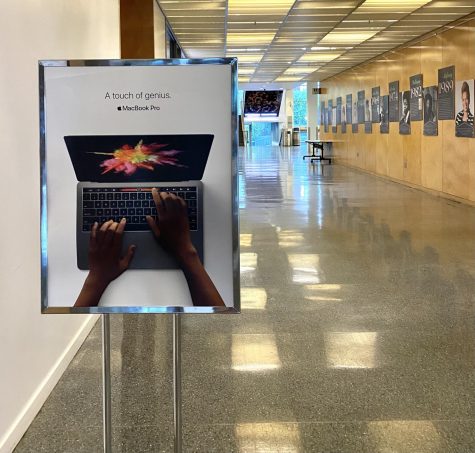OPINION | Campus advertising interrupts learning environment
There is a marketing adage that says, “If you are not the customer, then you are the product.” At Tulane University, the students have become both the customer and the product. With students being charged over $56,000 annually in tuition, there is no doubt they are the customer of the university. However, the Tulane campus is increasingly inundating campus-goers with advertising. Grubhub has signs all over campus; The Wall Street Journal advertises in the library; and our sports stadiums are covered in sponsors of all types. With how much students pay for their time at college, why are they subjected to this constant stream of advertising?

There is an unshakable feeling that there is something anti-collegiate about this. A liberal arts experience, in its idealized form, is a place to learn, free of special interests, an oasis where groundbreaking ideas can sprout and grow safely. In some way, this seems contrary to that goal, as the university is inviting in profit-focused corporations into the neutral intellectual space that is the goal of a university.
Moreover, this all feels anti-Tulane. Tulane says that “Fostering a close and cooperative relationship with our community and our neighbors is one of Tulane University’s most important priorities.” Yet the university is inviting multinational companies like Grubhub onto campus, whose high fees are passed on to the local restaurants and directly hurt the local businesses that Tulane proclaims to support. The university spends thousands of dollars on health services on campus but allows energy drinks to advertise in the Lavin-Bernick Center. Students are adults and can make their own decisions, but it seems nonsensical to actively promote unhealthy choices when the university proclaims to be working to help students live healthy lives.
Furthermore, there is the aesthetic concern of advertising on campus. Simply put, it is an eyesore. Tulane’s campus is gorgeous, with masterfully maintained greenery and flowers, and it has plenty of beautiful architecture. Bringing in outside advertisers to adorn our campus with their signage seems foolish, and it detracts from the uplifting aura of tradition in beauty that is the Tulane campus.
The benefit of the influx of advertising should also be discussed. Tulane having corporate partners brings in money for the school to spend on the student body and on employing New Orleans community members. But is this corporate partnership in its current form the best and most ethical way to accomplish this? If the administration stands by the decision to have these partners and advertisers, they should release how much they are getting from these deals, so students can see the cost it takes to make Tulane compromise on its mission.
Do we really need Grubhub when something like D’livery Nola exists? D’livery Nola is a locally-owned alternative to the corporate behemoths that are the nationally recognized delivery apps. They charge fair fees that are reasonable for both customer and restaurant, and money spent through them stays in the community. New Orleans has a vibrant community of local businesses that can be perfect alternatives to many of Tulane’s current partners. The university’s money is better spent on local business instead of enriching shareholders’ dividends.
Your donation will support the student journalists of Tulane University. Your contribution will allow us to purchase equipment and cover our annual website hosting costs.



K • Apr 23, 2021 at 2:10 am
Haven’t read a piece as awful as this one for a while. Having these types of commodities is a privilege and it creates access for students. Would you rather drive 20min to an Apple Store? or buy a laptop from your school store that has a student credit automatically applied to it?
Andrew • Apr 22, 2021 at 8:18 pm
I have no idea what the this option piece is trying to get across. That somehow, it is beneath a University to provide a revenue stream via advertising. I am an Alum doctor living in S.E. Asia, and the notion that earning monies somehow interferes with education is just silly. Monies that contribute to scholarship and research opportunities.